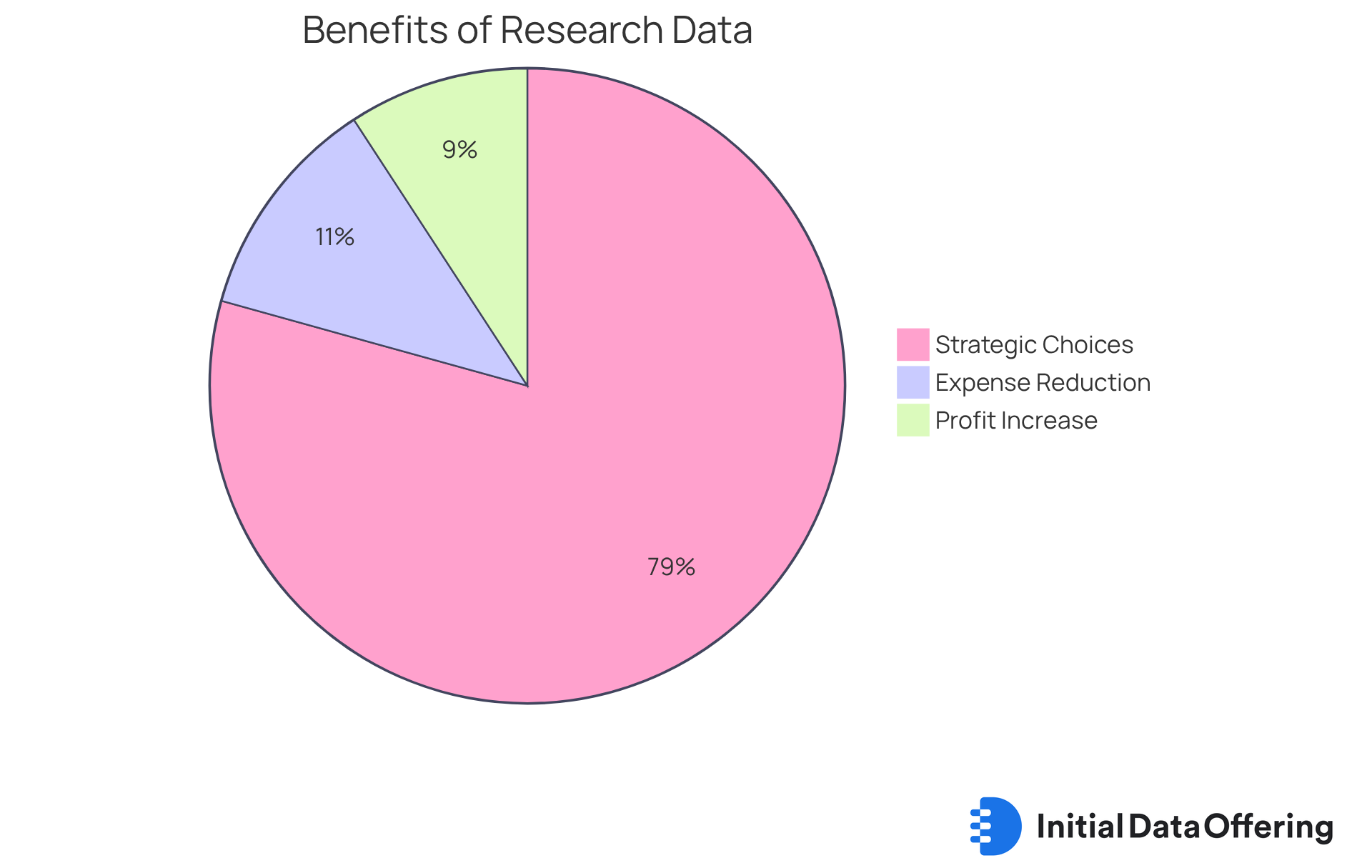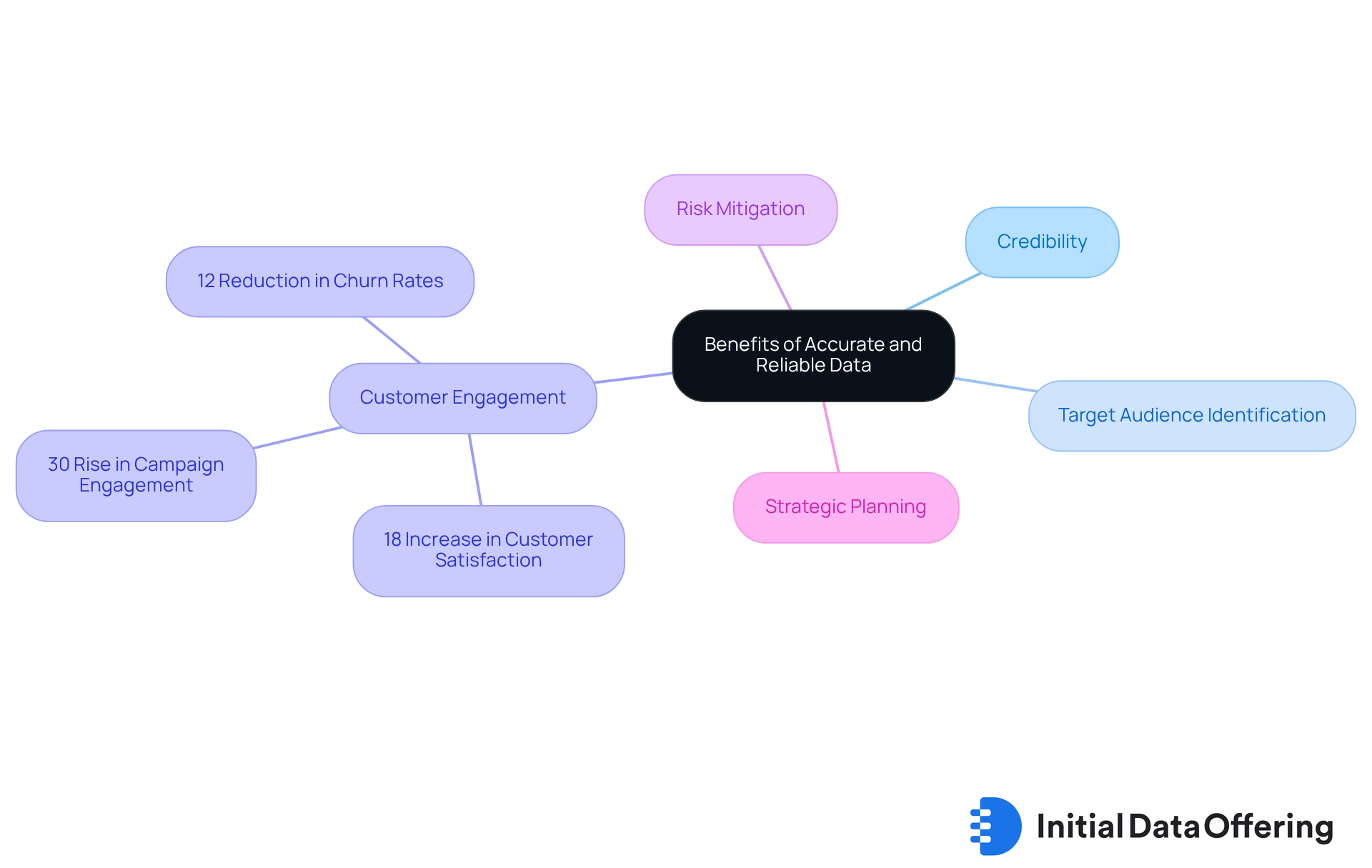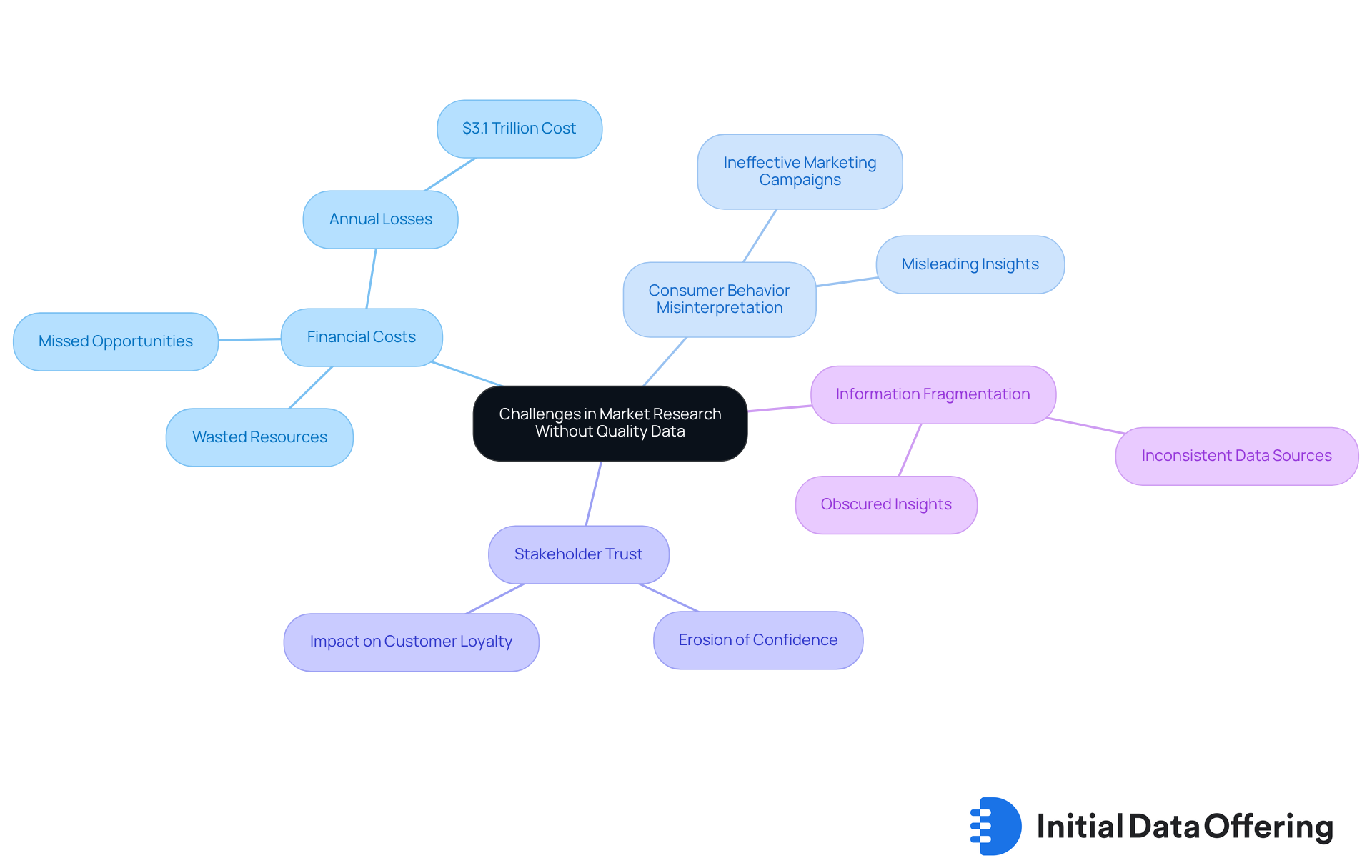Why Research Data is Crucial for Market Analysis Success

Why Research Data is Crucial for Market Analysis Success
Overview
Research data serves as a fundamental component for achieving success in market analysis. It provides essential insights that empower companies to understand their target audiences, identify emerging trends, and make informed decisions.
Businesses that leverage strong research data often experience notable profit increases, reduced expenses, and enhanced strategic choices. This demonstrates that accurate information not only boosts operational efficiency but also fosters a competitive advantage.
How might your organization benefit from implementing robust research methodologies?
Introduction
Research data serves as the backbone of effective market analysis, providing companies with essential insights to navigate today’s complex consumer landscape. By leveraging accurate and reliable data, businesses can identify emerging trends and make informed decisions that align with customer needs. This alignment ultimately enhances their competitive edge.
However, the challenge remains: how can organizations ensure they are utilizing the highest quality data? Ensuring this is critical to avoiding costly missteps and missed opportunities in their market strategies.
Establish the Importance of Research Data in Market Analysis
Research data plays a crucial role in market evaluation, providing vital insights that assist companies in understanding their target audiences. This feature enables organizations to identify emerging trends and evaluate competitive landscapes. The advantage of this capability lies in the informed decisions companies can make based on research data, ensuring they resonate with consumer needs. For example, information analysis can reveal shifts in consumer preferences, prompting businesses to proactively adjust their strategies. Companies that rely on strong research data are less prone to making decisions based on assumptions, which can lead to missed opportunities and strategic errors. As Sherlock Holmes wisely stated, "theories without evidence are simply assumptions."
Indeed, companies that leverage extensive research data demonstrate an average profit increase of 8% and a 10% reduction in expenses, showcasing the concrete benefits of analysis-driven decision-making. Furthermore, 69% of firms utilizing comprehensive research data report improved strategic choices, emphasizing the effectiveness of harnessing insights. The ability to utilize information effectively not only enhances operational efficiency but also distinguishes successful companies from those that struggle to adapt to industry changes. According to industry specialists, businesses that prioritize strategies based on research data are nearly 19 times more likely to achieve profitability, underscoring the essential role of information in driving analytical success.

Highlight Benefits of Accurate and Reliable Data
Precise and dependable information is essential for efficient market analysis, as it significantly enhances the credibility of insights derived from research. High-quality information allows businesses to identify their target audience with greater accuracy, leading to improved marketing strategies and increased customer engagement.
For instance, companies that leverage precise demographic and psychographic data can tailor their products and services to meet specific consumer needs, ultimately boosting customer satisfaction and loyalty. A notable case study involving ConnectNow illustrates this point:
- By utilizing analytics, the company achieved an 18% increase in customer satisfaction scores.
- A 30% rise in campaign engagement rates.
- A 12% reduction in churn rates over six months due to targeted marketing efforts.
Furthermore, reliable information mitigates risks associated with decision-making, providing a solid foundation for forecasting and strategic planning. In contrast, low-quality information can lead to misguided strategies and wasted resources, underscoring the importance of prioritizing information integrity in market research.
As W. Edwards Deming aptly stated, 'Without information, you're just another individual with an opinion.' This highlights the critical role information plays in achieving successful outcomes, particularly as 79% of marketers overlook revenue opportunities due to challenges in information analysis, with only 20% of analytical insights expected to yield results through 2022.

Examine Challenges in Market Research Without Quality Data
Conducting industry research without reliable information can lead to significant challenges that undermine the validity of conclusions. The quality of information is crucial, as subpar data is projected to cost companies a staggering $3.1 trillion annually, resulting in inaccurate market evaluations and missed opportunities. Organizations relying on outdated or biased information may misinterpret consumer behavior, which can lead to ineffective marketing campaigns that fail to resonate with target audiences. Furthermore, issues such as information fragmentation and inconsistencies can obscure valuable insights, complicating businesses' ability to navigate competitive landscapes effectively.
The repercussions extend beyond operational inefficiencies; a lack of dependable information can erode stakeholder confidence and trust. This underscores the importance for organizations to invest in robust information sources, such as those provided by Initial Data Offering, which lists new datasets daily. By subscribing to Initial Data Offering, market research analysts can gain premium access to high-quality data that is essential for fostering customer loyalty and trust in a competitive market.
How can reliable data transform your market strategies? With access to accurate and timely datasets, businesses can make informed decisions that enhance their market positioning. The benefits of investing in quality information sources are clear: improved consumer insights, more effective marketing campaigns, and ultimately, a stronger competitive edge.

Conclusion
Research data serves not merely as a tool; it stands as the backbone of effective market analysis, empowering businesses to thrive in competitive landscapes. By leveraging accurate and reliable data, companies gain invaluable insights into consumer behavior, enabling informed decisions that resonate with their target audiences. The ability to identify trends and evaluate market conditions through robust research data is essential for organizations aiming to stay ahead of the curve and avoid costly strategic missteps.
Key points throughout the article highlight the undeniable advantages of utilizing high-quality research data. Companies that embrace data-driven strategies experience significant profit increases and reduced expenses, showcasing the tangible benefits of informed decision-making. Moreover, the importance of precise information is underscored by its capacity to enhance customer satisfaction and engagement, as evidenced by successful case studies. Conversely, the challenges posed by poor data quality reveal the potential pitfalls of neglecting robust research practices, leading to misguided strategies and lost opportunities.
Ultimately, the significance of research data in market analysis cannot be overstated. Organizations must prioritize investing in reliable information sources to unlock their full potential in understanding market dynamics. By doing so, businesses can transform their strategies, enhance consumer insights, and secure a competitive edge. Embracing the power of accurate data is not just a choice; it is a necessity for achieving sustained success in today's ever-evolving marketplace.
Frequently Asked Questions
Why is research data important in market analysis?
Research data is crucial in market analysis as it provides vital insights that help companies understand their target audiences, identify emerging trends, and evaluate competitive landscapes.
How does research data influence decision-making in companies?
Companies that rely on strong research data can make informed decisions based on evidence rather than assumptions, reducing the risk of missed opportunities and strategic errors.
What are the benefits of utilizing research data for companies?
Companies that leverage extensive research data see an average profit increase of 8% and a 10% reduction in expenses, indicating the concrete benefits of analysis-driven decision-making.
How prevalent is the use of research data among firms?
Approximately 69% of firms that utilize comprehensive research data report improved strategic choices, highlighting the effectiveness of harnessing insights.
What impact does prioritizing research data have on a company's profitability?
Businesses that prioritize strategies based on research data are nearly 19 times more likely to achieve profitability, emphasizing the essential role of information in driving analytical success.
How does research data enhance operational efficiency?
The effective utilization of information enhances operational efficiency and distinguishes successful companies from those that struggle to adapt to industry changes.